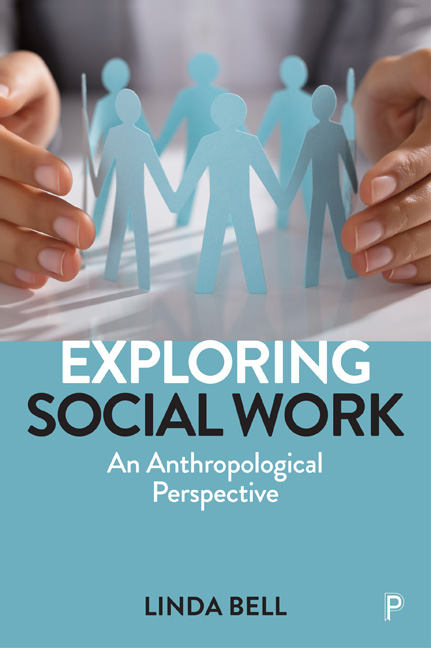Book contents
- Frontmatter
- Dedication
- Contents
- Acknowledgements
- Preface
- 1 Introducing Social Work: Who are Social Workers? Why do we Need Them?
- 2 Getting Involved: An Anthropological and Auto-Ethnographic Journey
- 3 Time and Change: UK Social Work and Comparative European Welfare Policies Since 1990
- 4 Becoming: Being Admitted, Educated and Trained in Social Work
- 5 Growing: Experiencing Social Work Education and Socialisation
- 6 Identifying
- 7 Valuing and Transgressing
- 8 Relating and Partnering: Social Workers, Clients/Service users and other Professionals
- 9 Knowing and Evidencing: Building a Research Base, Mapping and Modelling
- 10 Organising: Influences of the state, Organisations and Wider Social Policies
- 11 Symbolising: Cultural Representations in Theory and in Practice
- 12 Changing: The Future – Social Work in Wider Society
- References
- Index
6 - Identifying
Published online by Cambridge University Press: 04 March 2021
- Frontmatter
- Dedication
- Contents
- Acknowledgements
- Preface
- 1 Introducing Social Work: Who are Social Workers? Why do we Need Them?
- 2 Getting Involved: An Anthropological and Auto-Ethnographic Journey
- 3 Time and Change: UK Social Work and Comparative European Welfare Policies Since 1990
- 4 Becoming: Being Admitted, Educated and Trained in Social Work
- 5 Growing: Experiencing Social Work Education and Socialisation
- 6 Identifying
- 7 Valuing and Transgressing
- 8 Relating and Partnering: Social Workers, Clients/Service users and other Professionals
- 9 Knowing and Evidencing: Building a Research Base, Mapping and Modelling
- 10 Organising: Influences of the state, Organisations and Wider Social Policies
- 11 Symbolising: Cultural Representations in Theory and in Practice
- 12 Changing: The Future – Social Work in Wider Society
- References
- Index
Summary
In this chapter, I come to a key issue for both social workers and those who work alongside them: identity. I have already suggested that I see identity or identities as something that social workers (and those in related occupations, such as social pedagogues) construct with others, especially as they become socialised into their profession. In earlier chapters, we saw that both Jenkins (2014) and Chandler (2017) characterise identity as something that can be both collective and individual. As the following social work interviewee said to me, there are issues with defining the collective form of social work identity, which will have implications for individual practitioners:
‘We have really struggled with this idea of our professional identity and we have both striven for, but had it imposed upon us, what that identity is; and I think largely due to nervousness about the role, I think you start to mention child protection and people, you know, the government etc, feel very anxious and their anxiety, this is my take on it, is therefore, they feel it's important to standardise, have very clear-cut expectations.’ (English social worker/educator speaking in 2018)
As we saw in Chapter 5, this standardisation can involve increasing controls over social work education as well as practice, though some have suggested that, where possible, social workers need to learn how to balance accountability with creativity. There have been recent attempts to put in place specific forms of post-qualification accreditation (for example, for social workers working in child protection in England), though the outcome of that particular attempt is still uncertain at the time of writing.
Some informants also said to me that they thought the social work role was becoming narrower, or distributed to other professions or occupations:
‘The social work role is being distributed to other groups. So, police officers take on more of the work of social workers, school teachers take on more of the role, nurses take on more of the role of social workers, charities with people not qualified in social work but who might do some of the tasks and roles that people used to take, and social work is being reduced to a very narrow activity, which is concerned with safeguarding and corporate parenting.’
- Type
- Chapter
- Information
- Exploring Social WorkAn Anthropological Perspective, pp. 77 - 90Publisher: Bristol University PressPrint publication year: 2020

